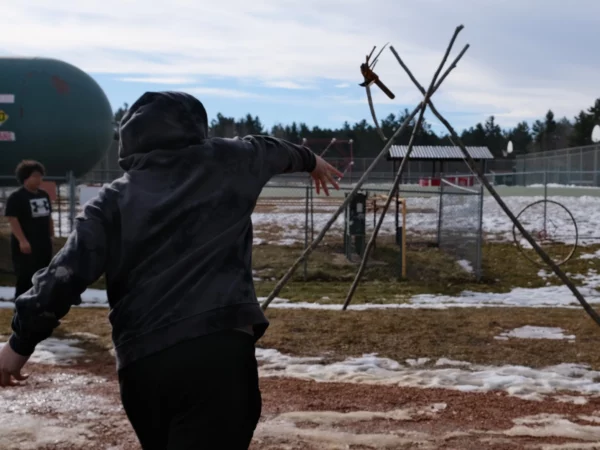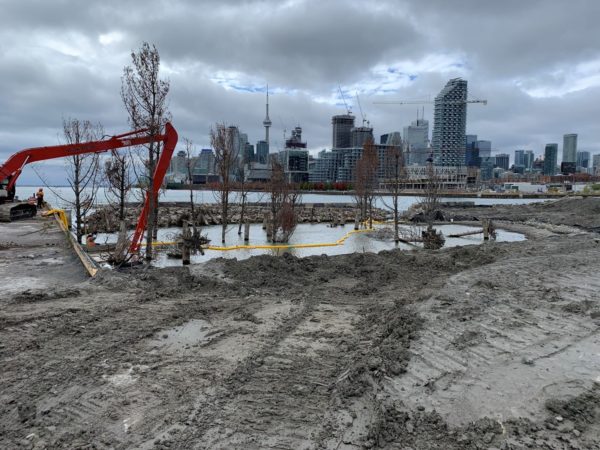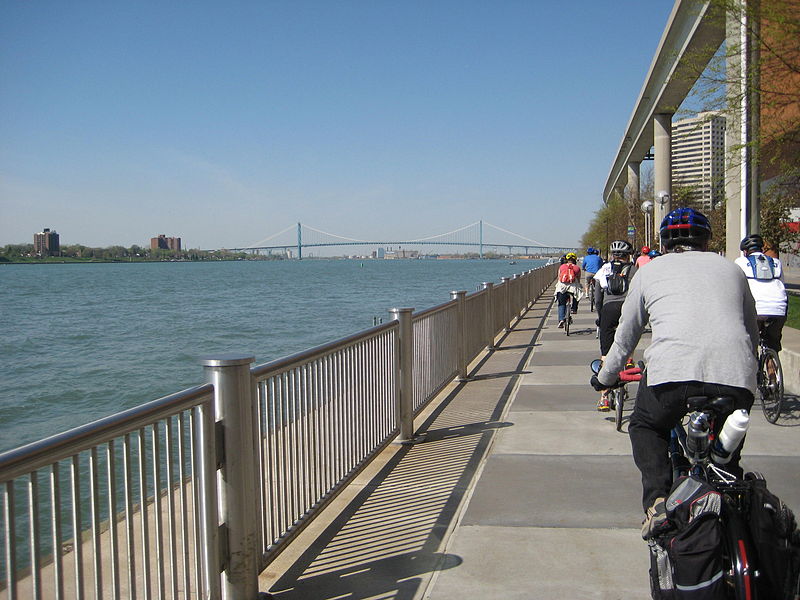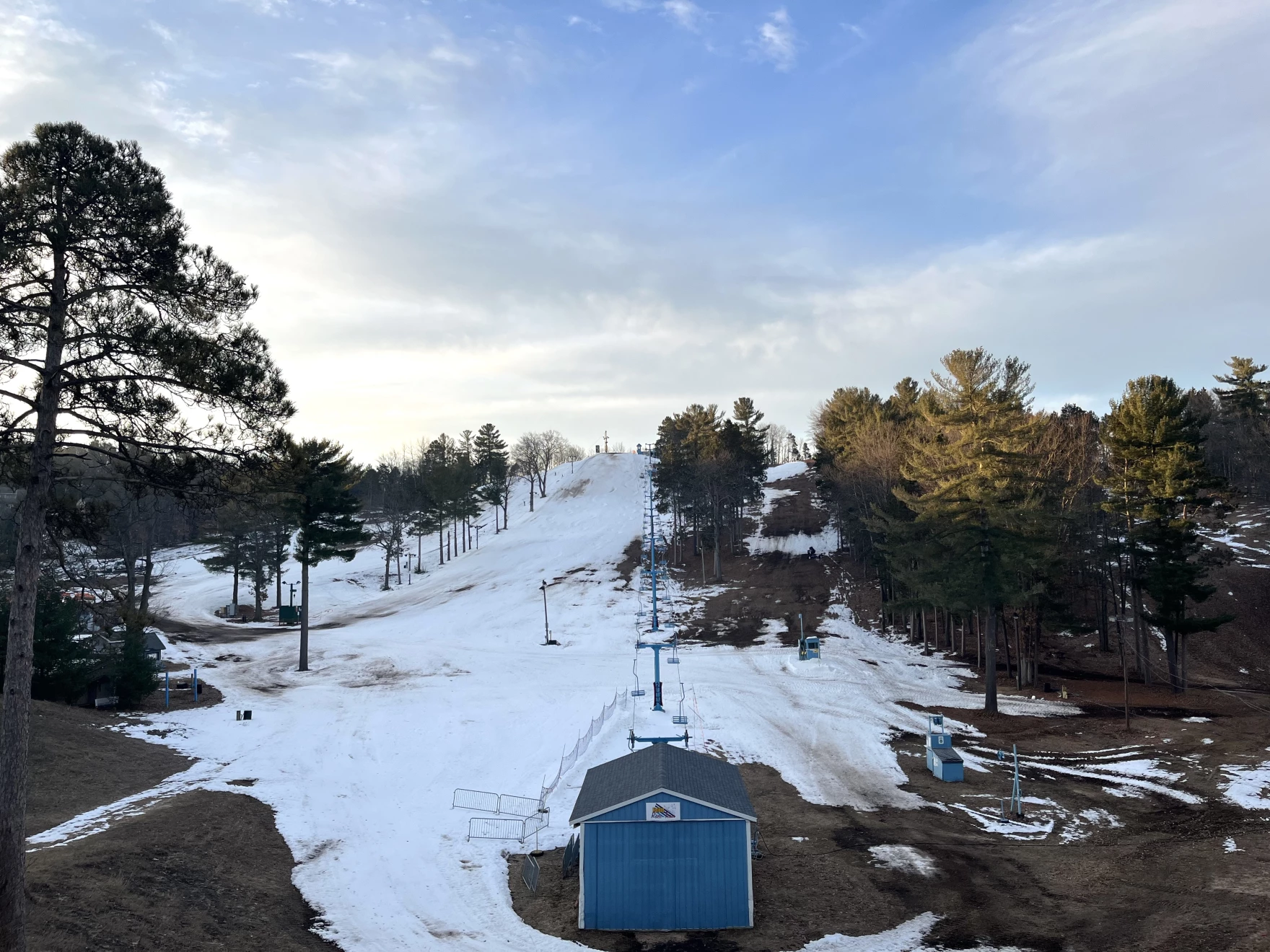
By Izzy Ross, Interlochen Public Radio
This coverage is made possible through a partnership with IPR and Grist, a nonprofit independent media organization dedicated to telling stories of climate solutions and a just future.
- Winter recreation is a big part of Michigan’s economy, but warm conditions have been tough for some businesses.
- Attribution science helps determine the role of climate change in making weather events more frequent and intense.
- Businesses are increasingly turning to activities during the other seasons, like fall color tours, zip lining, hiking and biking.
It’s around 8 a.m. on an early February morning at Mt. Holiday, a small ski area in Traverse City.
The rustic lodge overlooking the slopes is quiet. Executive Director Jim Pearson warns me to not be startled if I see a chipmunk running around.
“I’ve been trying to chase him out all morning since I got here,” he said. “He’s an elusive little guy.”
Outside, snow is still clinging to some of the hills, surrounded by streaks of brown earth. On this day, it’s supposed to reach around 50 degrees.
“It used to be we would use the snow guns to add to what Mother Nature gave us,” Pearson said. “And now it’s like the complete opposite, where we have to rely more on the man-made snow. So obviously, that’s a lot of ground to cover. It’s been very challenging.”
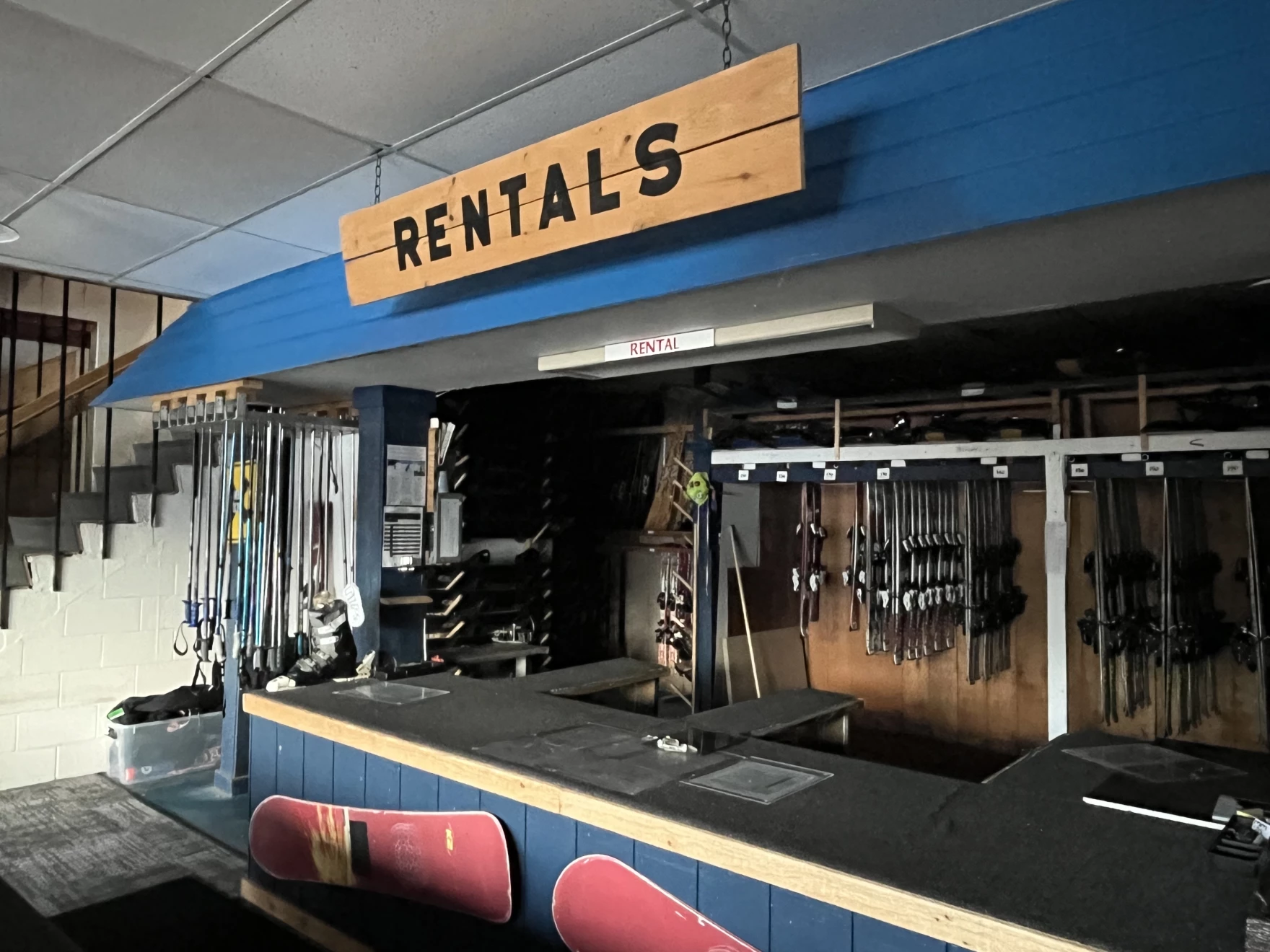
Ski rentals at Mt. Holiday have been quiet this year, as warm weather has made conditions less than ideal. Feb. 8, 2024. (Credit: Izzy Ross/IPR News)
In a place where businesses depend on snow and cold temperatures, this weather has been tough. Iconic sled dog races like the UP200 and the Tahquamenon Country Sled Dog Race have been canceled, and the state shut down ice fishing for sturgeon on Black Lake.
Warmer winters have prevented Mt. Holiday from fully operating over Christmas break for five out of the last six years due to poor snow conditions, according to Pearson. It used to be a big moneymaker.
This year, Traverse City saw a Christmas Day high of 58 degrees, tying it with the record high set in 1982. The western part of the Upper Peninsula saw its warmest December since the National Weather Service started keeping records over a century ago.
Pearson said they’ve discussed shutting down for the season, but he hasn’t given up yet.
“One of the challenges is we tried to preserve what snow we had,” he said. “So in some cases, that’s easier to do than others.”
He walks down the stairs of the lodge and out to the deck overlooking the chairlifts.
“This is usually what we would see in late April,” he said, pointing to uneven snow cover on the hills. Even with bad conditions for skiing, Mt. Holiday can turn to tubing, which requires less snow.
Pearson hopes colder weather will come to let the snow guns do their work. They use hundreds of gallons of water per minute when they’re all firing. When it’s cold enough, crews operate them in shifts, sometimes 24 hours a day, trying to keep snow on the ground.
Some of the region’s larger ski resorts further north have the advantage of cooler temperatures, Pearson said, and with better equipment they can keep their guns going and stay open through the warm spells. Mt. Holiday doesn’t have that luxury.
“We put a pause on the skiing of that hill trying to preserve it until — well, we hoped cold temperatures were going to come this week,” he said. That forecast was pushed back to the following week.
The future of winter
“Winters in northern Michigan and in the Upper Midwest in general are warming and becoming shorter due to climate change,” said Lauren Casey, a meteorologist with the nonprofit Climate Central.
To understand the difference between weather and climate, Casey said, we can think of weather as news, and climate as history.
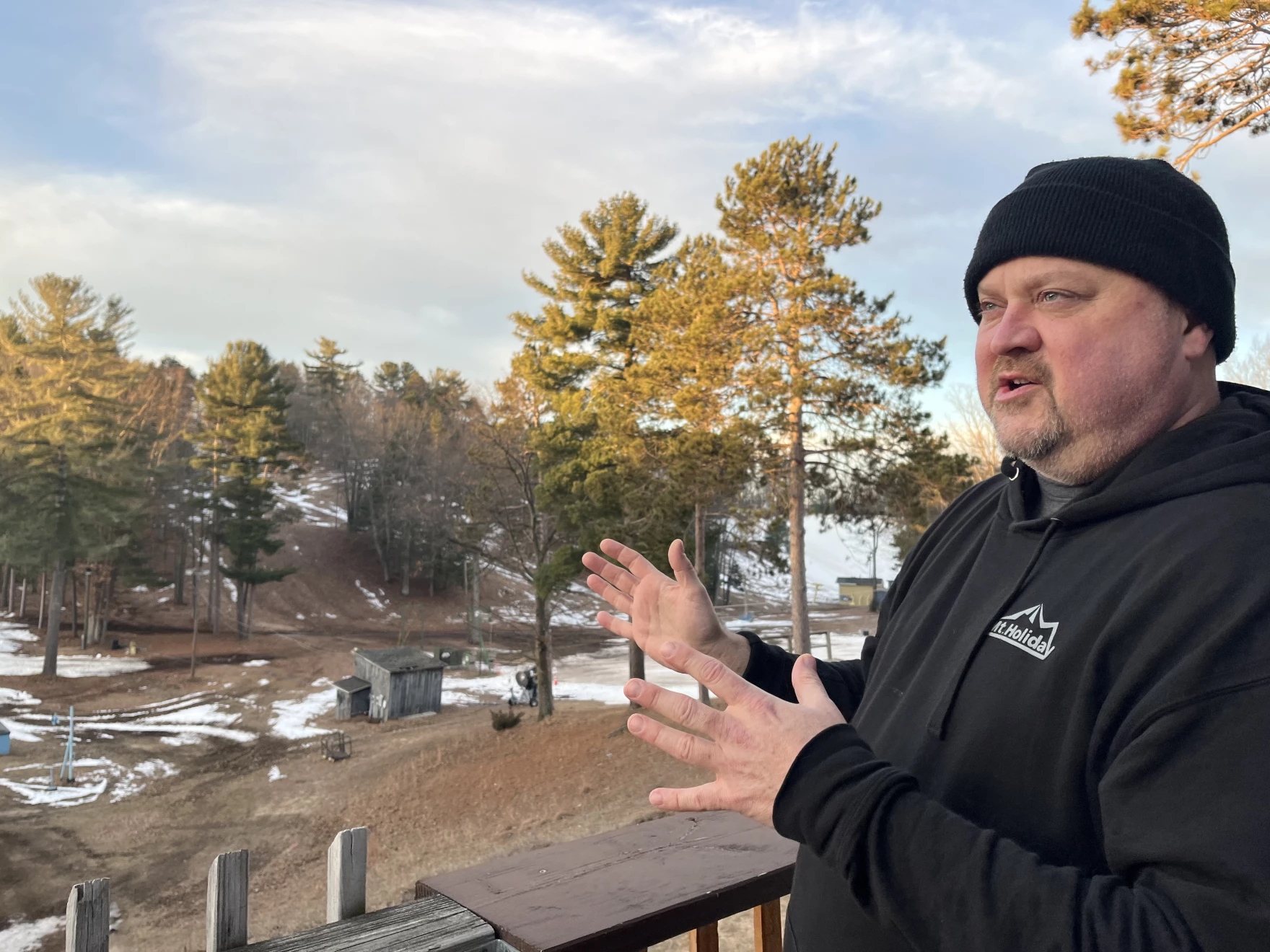
Mt. Holiday’s executive director, Jim Pearson, talks about this winter’s conditions. Feb. 8, 2024. (Credit: Izzy Ross/IPR News)
Attribution science helps determine the role of climate change in making weather events more frequent and intense — including temperatures.
“I was a broadcast meteorologist before moving to Climate Central two years ago, and that would be kind of the narrative, like, you can’t tie one specific event to climate change,” she said. “That has all changed with the evolution of attribution science. And it continues to get more advanced every day. So now we can correlate certain events and the impact that climate change has had on it.”
Climate Central has a “Climate Shift Index,” which shows how much climate change influences temperatures on a given day.
In Traverse City, on the day we talked to Jim Pearson at Mt. Holiday, the index showed that climate change has made those warmer temperatures three times more likely. As the index says, “this would be very difficult to encounter in a world without climate change — not necessarily impossible, just highly unlikely.”
Big bucks for Michigan
Winter recreation brings in billions of dollars to Michigan’s economy each year. The state has the second-most ski areas in the country.
The Michigan Economic Development Corporation reported a spike in “snow activities” in recent years, adding $130 million to the GDP in 2022.
In 2020 the Great Lakes Business Network estimated that the economic impact of winter activities was around $3 billion annually.
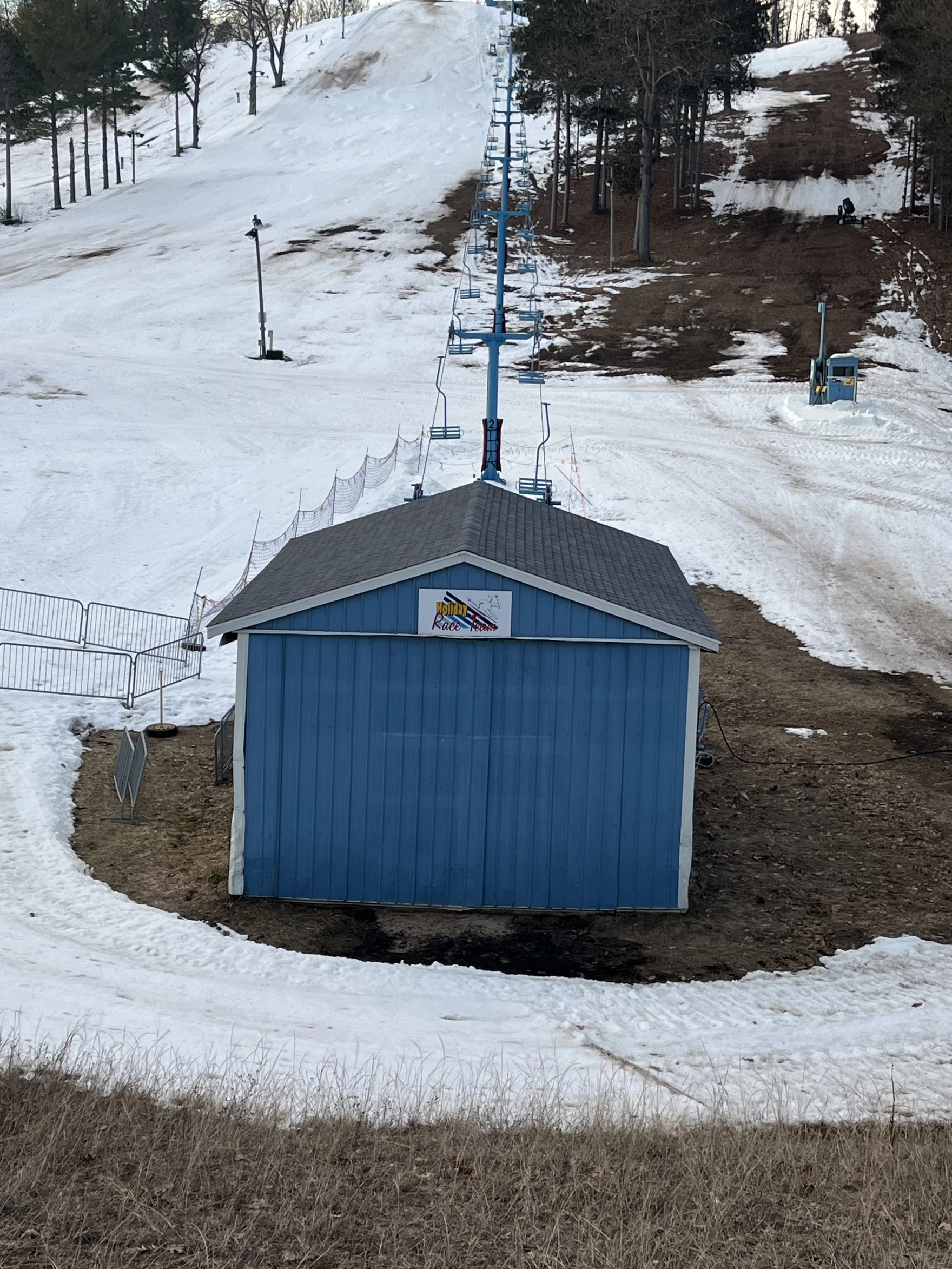
The blue chair lift at Mt. Holiday on Feb. 8, 2024. (Credit: Izzy Ross/IPR News)
“So it is unfortunate for a lot of those businesses that do rely on the winter season, and those activities. And obviously, that takes a big hit,” said Leah Robinson, with the Michigan Chamber of Commerce. “But our businesses are very resilient, and have learned over the years that relying on one specific season or activity is not necessarily the best way to go about things.”
As some businesses grapple with what to do, the state is trying to shore up the damage from the warm weather. In 2021, the Still Pure Michigan ad campaign announced that it would spend $3 million on ads for that winter.
A recent Department of Natural Resources email urged readers to “make some no-snow outdoor plans today.”
The department offered ideas for other activities — shore fishing, stargazing, birding, and a cold-water plunge in the East Grand Traverse Bay, followed by a sauna.
Back at Mt. Holiday, Pearson said the team is continuing to shift its focus.
“Ropes courses, frisbee golf, maybe using the chairlift in the summertime to bring people up and down, fall color tours,” he said. “Anything that we can add that brings people out here to enjoy.”
All that, he said, is part of leaning on the other seasons instead of just hoping for good winters ahead.
Catch more news at Great Lakes Now:
As Michigan winters vanish, researchers study snow for clues about what’s next
Michigan’s lost winter cancels sturgeon season, ski, dog sled races
Featured image: Mt. Holiday’s hills covered with patchy snow the morning of Feb. 8, 2024. (Credit: Izzy Ross/IPR News)


